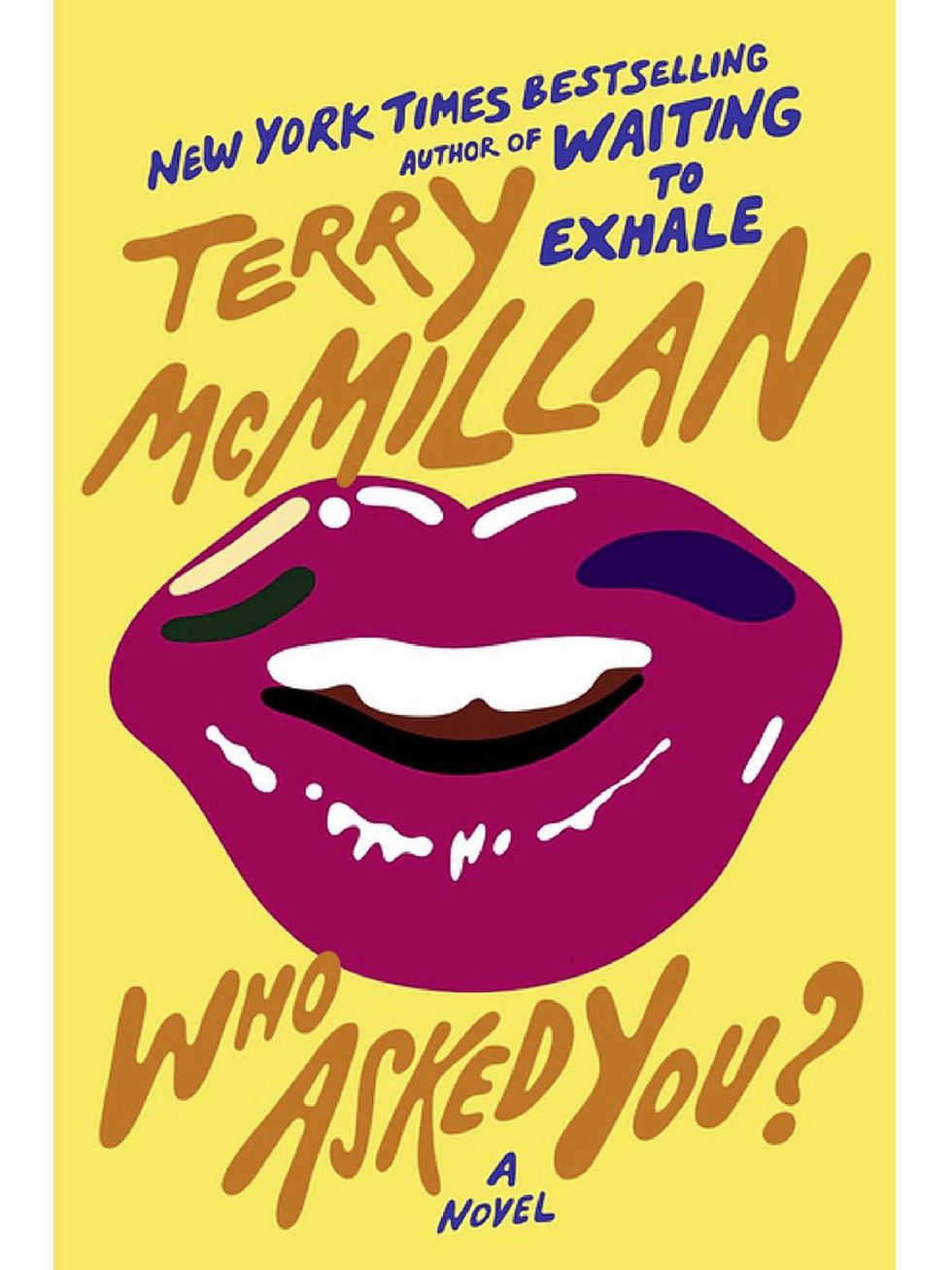Special Reading
What's so funny about bad advice? Terry McMillan finds humor in new novel, Who Asked You?
In best-selling author Terry McMillan’s new novel Who Asked You?, Betty Jean, an African-American woman who has spent her life working and raising a family and is now ready to retire, finds she must become the primary caretaker once more.
Alzheimer slowly takes her husband from her. One son is in prison. Another is a successful chiropractor, who refuses to acknowledge his “ghetto” beginnings. As the novel begins, her daughter Trinetta, struggling with drug addiction, abandons her two sons on their grandmother’s doorstep.
Perhaps even worse than the crises that threaten to drown Betty Jean are the myriad of friends and relatives insisting on giving her life advice while they completely ignore their own failures.
McMillan hasn’t made a trip to Houston in almost two decades, but Who Asked You? brings her to town for a special reading.
From this description, it might seem McMillan has discarded the hope and laughter she brought readers in previous novels like Waiting to Exhale and How Stella Got Her Groove Back, but throughout Who Asked You?, hope and even some sly humor hide amid the pages.
McMillan hasn’t made a trip to Houston in almost two decades, but Who Asked You? brings her to town for a special reading, in conjunction with Brazos Bookstore, at the Ensemble Theatre on Wednesday (Oct 9). Before her visit she talked to me by phone about creating the 15 first-person narrators who work, and occasionally clash, together to tell Betty Jean’s story.
CultureMap: The novel deals with many real life problems like poverty, drug addiction, debilitating mental illnesses, and fractured families that millions of people face today. As you began the novel, were there certain issues that you sat down to write about or did you begin with a voice or character whose story you needed to tell?
Terry McMillan: I have a pretty good idea about what is at stake in my stories. I always start with a character who is pretty much going to lead the story. In this case, I knew I wanted to tell a story of a grandmother raising her grandchildren. I knew that before I knew who Betty Jean was. Once I know the story, then I come up with a character, but I don’t dictate how my characters are going to behave. I don’t know what they’re going to do. I just know in advance what they’re challenge is going to be.
CM: While I found Betty Jean’s voice to be the strongest and much of the plot revolves around her, the other 14 characters’ voices are very distinctive. They also seem rather conversational, like they are telling their darkest secrets to a friend. Did you have in mind someone or thing they were telling their stories to?
TM: No, sometimes it’s like a soliloquy in that you’re hearing what these characters are thinking and seeing. I think the conversational tone is pretty much how the characters talk.
CM: The other thing that the 15 first-person point of views reveal is the characters most hypocritical moments.
TM: That’s one of the reasons for the title. Many times in the real world people give unsolicited advice, and people take advice from the wrong people. Sometimes people that are giving advice, who are mostly judging, don’t look at their own behavior. They seem to miss that.
CM: In the novel there’s some real tragedy as well as some subtle to broad comedy. There are even some scenes — usually involving Nurse Kim, the visiting health care professional who treats Betty Jean’s husband — which might leave readers wondering if they should be outraged or laughing hysterically. How do you create that balance between the comic and tragic?
TM: As a writer, sometimes I’m the one who is the most surprised by my characters behavior. I knew I wanted Nurse Kim to be a hot number, sexy and pretty, but sort of pseudo-bright. I didn’t know how to take her, but I liked her. I thought maybe this woman might be a little nosey. But I didn’t know she would do some of the things she did. I was even embarrassed writing her. I would never read it [her chapters] aloud.
I don’t write anything deliberately to be funny. A lot of times that’s just the way it comes out. I’m not a comedian. I never write things just to be funny, but there is humor in tragedy.
CM: I guess in some ways the novel is simply mapping life. One day there’s a death, and it takes some time, but later something outrageous happens and you have to laugh.
TM: I feel like real life happens the same way. There’s some days when you think, how am I going to get through this day. Then something else can occur. It doesn’t make you forget, but you move on. Things change, and the tone changes in our lives sometimes on a day to day bases. All I’m basically doing is tracking it.
CM: The novel is set during the first decade of the 21st century, and some major events, like 9/11, are seen in the characters’ peripheral, but it did seem like Barack Obama’s candidacy and then election had some impact on the characters. Was that part of the plotting of the novel?
TM: I don’t know that that’s really true. I think it meant a lot, especially to [Betty Jean’s son] Dexter and the fact that he was in prison when this happened. I think it loomed very large in a lot of people’s lives because of the symbolism of it, but many of these characters were already on this trajectory to make changes anyway. . .It meant a lot to them and there were very proud. It gave them some perspective.
CM: With so many of your novels becoming films or television movies, do you think there is something particularly cinematic about your stories that make them easily adaptable to film?
TM: I’ve never thought of them that way. I certainly don’t see this one as a film. I didn’t see Stella as a film because most of it was interior monologue, but there’s a way to do anything, I guess.
CM: Yet you were the screenwriter on How Stella Got Her Groove Back and Waiting to Exhale, so you were the one that had to find “a way to do” it. Did you find it difficult?
TM: I always had screenwriting partners who were more adept at this than I was. They pretty much structured it, then I did the writing, at least in terms of dialogue, which happens to my strength. Structuring a screenplay is different. And it’s not as much fun as telling [the story] the first time.






